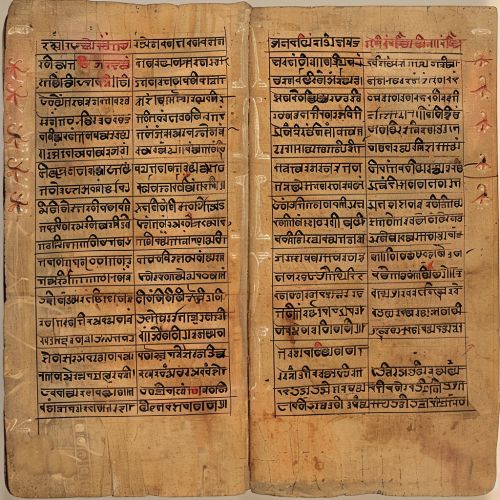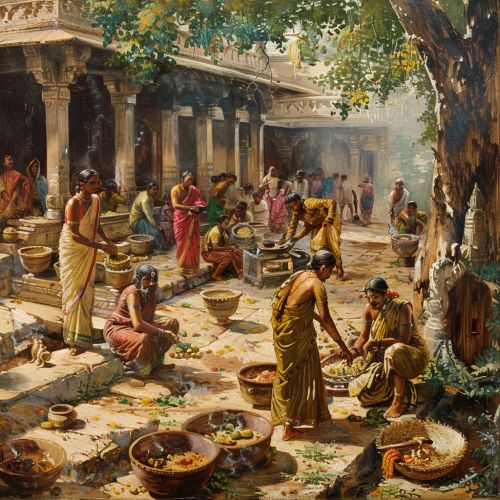Dharma
Origins and History
The term "Dharma" is derived from the Sanskrit root "dhr", which means "to uphold" or "to support". It is a complex and multifaceted concept in Indian philosophy, with no single-word translation in English. The concept of Dharma has been integral to Indian spiritual and philosophical traditions, including Hindu, Buddhist, Jain, and Sikh traditions.


The earliest mention of Dharma can be traced back to the ancient Indian texts of the Rig Veda, composed around 1500 BCE. The concept evolved over time, gaining prominence in the Upanishadic, Bhagavad Gita, and Dharma Shastra texts.
Concept and Interpretation
Dharma is a concept of central importance, not only in religion and philosophy but also in the social and legal spheres. It is often interpreted as duty, righteousness, morality, or law, but its meaning is more comprehensive, encompassing personal ethics, social order, law and justice, righteousness, and the path to spiritual liberation.
Dharma in Hinduism
In Hinduism, Dharma is considered the moral and ethical duties and responsibilities that individuals must follow to live a righteous life. These duties vary based on one's age, caste, gender, occupation, and other factors. The Manusmriti and other Dharma Shastras provide detailed guidelines on various aspects of Dharma.
Dharma in Buddhism
In Buddhism, Dharma refers to the teachings of the Buddha and the path to enlightenment. It encompasses the Four Noble Truths, the Eightfold Path, and other Buddhist teachings. The Dharma is seen as a universal truth that transcends cultural and societal norms.
Dharma in Jainism
In Jainism, Dharma refers to the true nature of reality, encompassing right belief, right knowledge, and right conduct. It is closely linked with the concept of karma and the path to liberation (moksha).
Dharma in Sikhism
In Sikhism, Dharma is the path of righteousness and justice, guided by the teachings of the Guru Granth Sahib. It emphasizes truthful living, equality, and service to humanity.
Dharma and Society
Dharma plays a crucial role in shaping social norms and legal systems in societies influenced by Indian philosophies. It provides a framework for ethical conduct and social responsibilities, influencing aspects such as familial roles, occupational duties, and societal norms.


Dharma and Spirituality
In the spiritual context, Dharma is the path that leads to liberation from the cycle of birth and death. It involves adherence to moral and ethical principles, cultivation of virtues, and spiritual practices.
Criticisms and Interpretations
While Dharma is a central concept in Indian philosophies, it has been subject to various interpretations and criticisms. Some critics argue that the concept of Dharma, particularly in the caste-based interpretation, can lead to social inequality and discrimination. Others interpret Dharma from a more universal perspective, emphasizing its role in promoting ethical conduct and spiritual growth.
